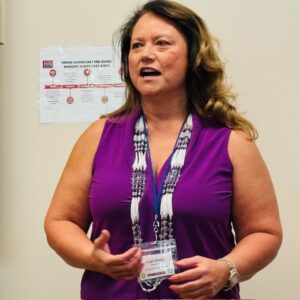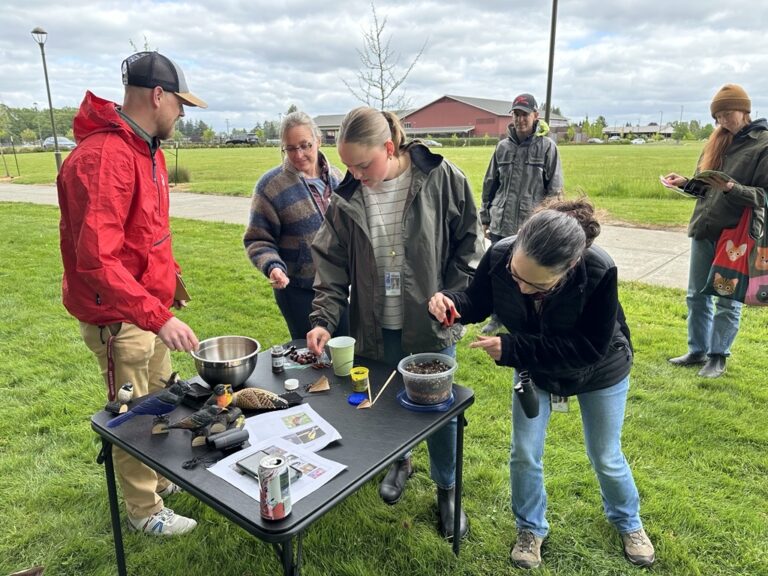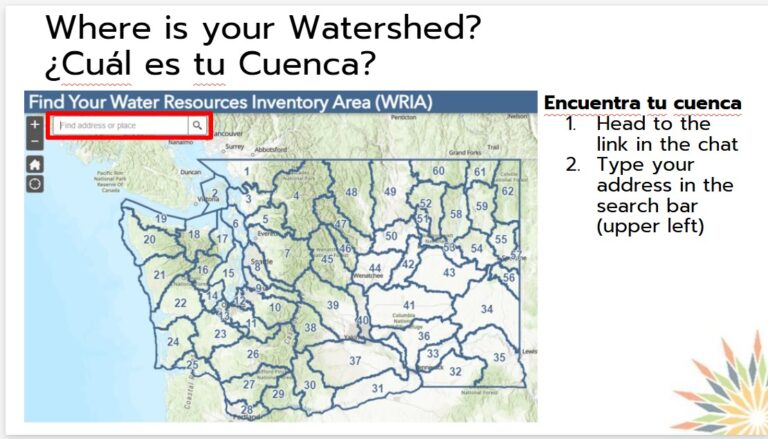Jess Rude of the Tulalip Hatchery explains the enhancements the hatchery has made to mitigate climate impacts.
It’s not every day that leaders from five sovereign nations speak at a teacher workshop, and yet, on August 5th and 6th, twenty-five educators had just this experience.

The workshop, entitled Tribes and Climate Change: Protecting the Circle, was held at the Tulalip’s Hibulb Cultural Center on the Tulalip Reservation. Speakers included former President Fawn Sharp of the Quinault Nation, Leonard Foresman, Suquamish Tribe, Ron Allen, Chair of Jamestown S’Klallam, Kat Brigham, former Chair of the Confederated Tribes of the Umatilla, and Teri Gobin, Chair of the Tulalip Tribe.
The intent of the workshop was to highlight Indigenous voices, histories, current activities, and future planning efforts, and to demonstrate how the tribes represented are combating climate change and successful efforts they have led. Teachers heard many examples of leadership roles Tribes are taking to address climate change both here in Washington and at a global level.
Fawn Sharp, who has attended the Conference of Parties, a global Climate Change convening, pointed out the power small sovereign nations like Tribes have with respect to pushing change agendas, and bringing them back to their nations and implementing projects. Smaller governments have less “red tape”, so projects can be put in place more quickly, situating tribes as leaders in climate change mitigation efforts.
“From a true sense of place and ancestry guiding them and an emerging position of political and economic power, the tribes and bands of the Pacific Northwest are battling climate change head-on and inspiring us all.” — Michael Harris, Executive Director of This is Indian Country
Teachers were also introduced to teaching resources available on the TIIC website including “Tribes and Climate Change, Protecting the Circle and The Climate Project which is capturing oral histories of indigenous leaders.
Michael Harris, Executive Director of This Is Indian Country, says this of the work “From a true sense of place and ancestry guiding them and an emerging position of political and economic power, the tribes and bands of the Pacific Northwest are battling climate change head-on and inspiring us all.”




